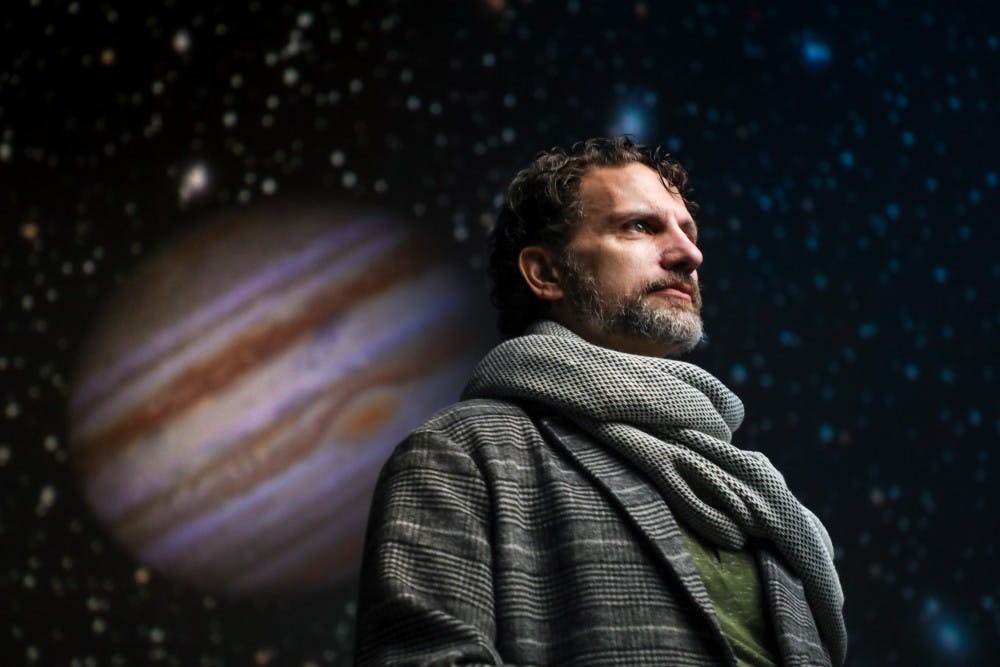Each time Bertolt Brecht set out to develop one of his plays, he documented it furiously. He scribbled pages on pages of notes compiled into journals along with photographs and drawings and so on. He meant to take the play and make it matter in that moment. When Director Vivienne Benesch and crew set out to revitalize the “Life of Galileo,” they wanted to produce a play that would matter in this moment.
For Brecht, who wrote three distinctly different versions of the play, and the PlayMakers crew, this is a political piece first and foremost. The play’s deepest threads concern the responsibility of the scientist and science in the face of opposition; for Galileo, the Catholic Church. But this rendering spoke to matters closer to home. The crew was inspired to produce the play in the wake of Donald Trump’s removal of the United States from the Paris Climate Accord.
The updated take featured more than just a thematic link. A notoriously difficult play to stage, the futuristic set is like something between Ikea and "Star Trek." A large obtuse floorspace protruded into the audience. Up the staircase was a railing and a rounded room that looked fitting for an astronomer. The modern approach didn’t stop there.
The Ballad Singer (Tristan Parks) was found frequently on stage or beside it, like an audience member with an iPhone in hand. Transitions between acts chirped as alerts on his phone, which he read aloud, and at other times the phone was used in live recording, projecting the footage onto the screens. Threads of censorship, secrecy and observation were pulled taught. Brecht is notorious for his epic theater in which the familiar is made obscure to provoke reflection. This is often achieved by the interruption of an otherwise normal scene – the presence of an iPhone on stage seemed a fitting way to make Brecht’s approach modern.
Most of the actors played several roles and costumes ranged from hip-hop style streetwear to the bright-red robes of the Cardinal Inquisitor, however it was generally tame. Galileo (Ron Menzel) himself looked like a young professor – slacks, T-shirt, soft knitwear. The lines between audience and actor were threadbare at best. On stage, costume changes heightened self-consciousness again, placing intense focus on moments where Galileo left the stage. Instead of confusion, it felt that Galileo grew increasingly alone as his antagonists multiplied.
The play is one that could trudge at a slow metronomic pulse, save for small palpitations. Brecht by no means wrote a thriller. And yet, PlayMakers’ rendition hardly felt so dull. This was in no small part accounted for by a very diverse cast. Only a quarter of the actors were white males, over one-third were women, and almost half were people of color. The production thus stirs provocation in a more insightful light. Often overlooked is the fact that the effects of climate change are unequally distributed. Rural, largely non-white populations bear the burden of decisions like the Paris Climate Accord and climate change as a whole, as close to home as North Carolina.
“Life of Galileo” doesn’t really have a climax; instead it is the basis for each audience member to stop and consider its contents. The task is a big one, managing spectacle and intellect. The audience was engaged throughout; the spectacle successful. As the play concluded and the audience trickled out, many lagged to look at set pieces or to sit and talk. Perhaps the work of PlayMakers had only just begun.




